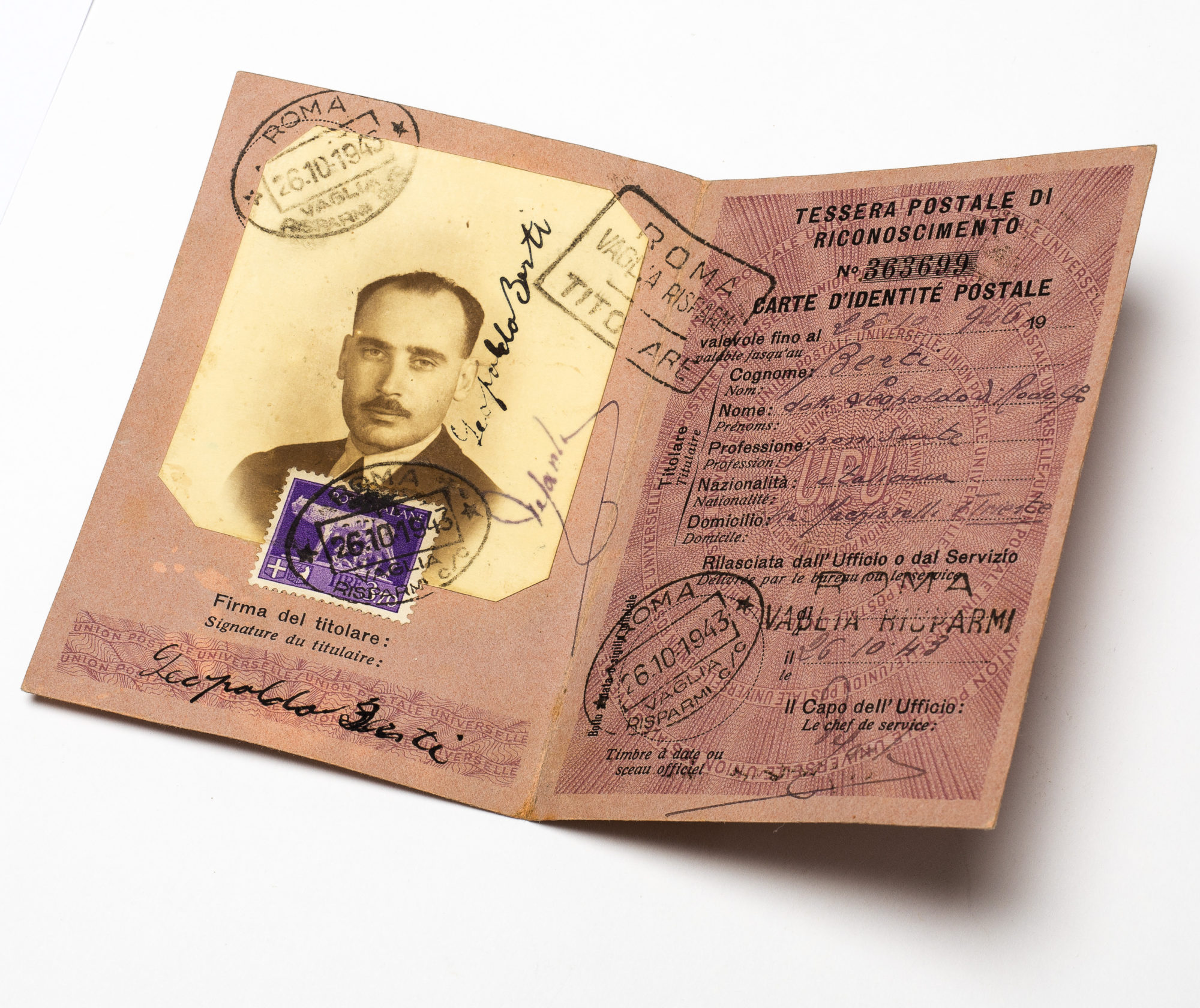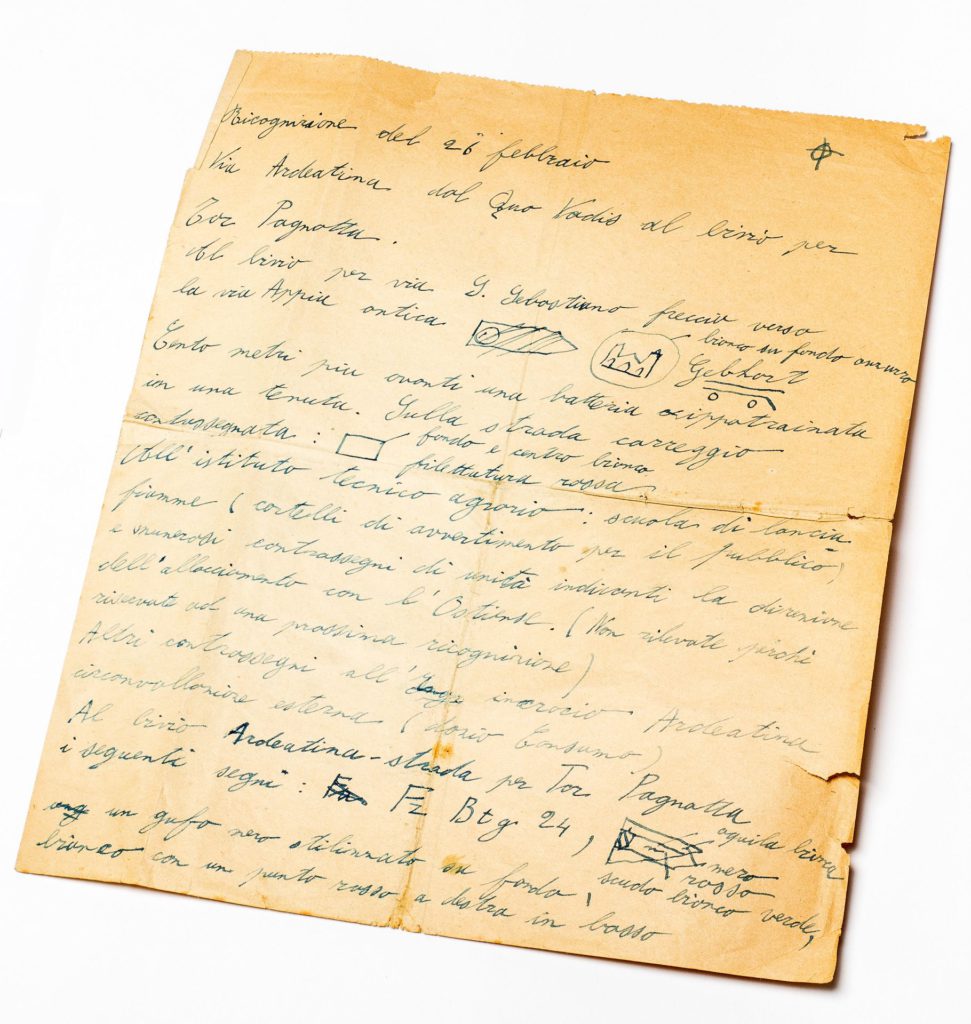
Leone Brunner (1908 – 1969) was the youngest child of Rodolfo and Gina Brunner in Trieste. He studied agriculture and converted to Catholicism in 1930. In 1932, he married Maria Teresa (Tea) Clerici; the couple had five children. On his family’s estates, Leone led the life of the landed gentry, characterized by a passion for hunting and other hobbies befitting his rank. As heir of his parents‘ considerable possessions, he also became board member of Banca Triestina as well as president of the stockbreeders’ association. After the German Wehrmacht’s invasion of Trieste in 1943, he joined the resistance against the National Socialists and assumed in this context the false identity of “Leopold Berti.” Part of his resistance activities consisted in drafting reports to the American armed forces on locations and types of the German invaders’ military installations and vehicles. In the meantime, his family remained fairly protected on the Brunners’ Forcoli country estate. Following liberation, the family returned to Trieste. After his wife’s death in 1947, Leone Brunner would never remarry.

